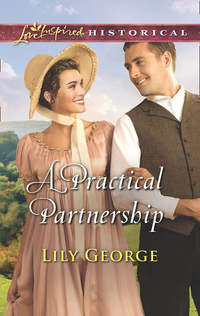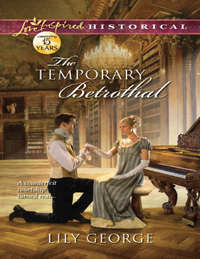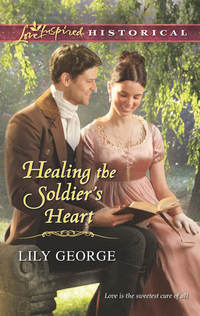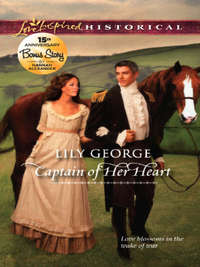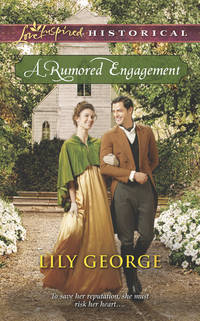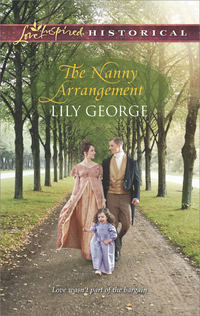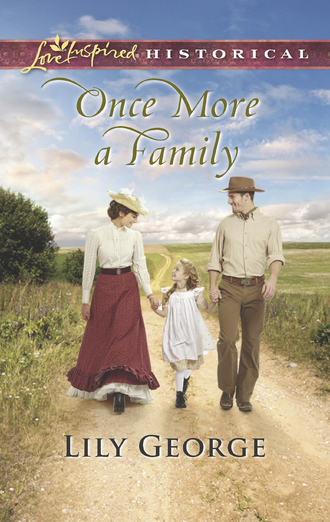
Полная версия
Once More A Family

The Texan’s Convenient Bride
To bring his daughter home to Texas, widowed rancher Jack Burnett needs a wife. And the well-bred Ada Westmore, his neighbor’s niece, will surely meet his father-in-law’s approval. Not willing to open his heart again to love, Jack proposes a marriage in name only. But his independent bride proves more intriguing than he expected.
Needing to support her sisters after the collapse of their father’s fortune, Ada reluctantly agrees to the handsome cowboy’s proposal. The transformation from New York belle to prairie wife—and mother—is challenging for the onetime suffragist. But when their little family faces the threat of being torn apart, Ada and Jack must decide whether their marriage of convenience can become a marriage of love.
“You should have thought to ask.”
“You wanted me to create an environment for Laura that would be acceptable to the St. Clairs.” She straightened her spine. “I can tell you right now that if Winchester Falls doesn’t get a church, it won’t become a place the St. Clairs will consider suitable.”
He sat there, staring at her. She would not look away.
“You still should have consulted me first. As an equal partner.” He said the last few words quietly, so faint that she had to strain to hear them.
“You are right.” And he was. She was barging ahead without thinking, but if he had done the same to her, she would have been furious. “I apologize.”
“Apology accepted.” He stuck his hand out down the length of the table. “They can have the land. Do we have a truce?”
She took his hand in hers. His was rough and calloused, the hand of a man who worked long, vigorous hours, using reserves of strength and vitality.
She pulled away sharply, suddenly aware that she had let her hand rest in his for longer than absolutely necessary.
Growing up in small-town Texas, LILY GEORGE spent her summers devouring the books in her mother’s Christian bookstore. These books, particularly ones by Grace Livingston Hill, inspired her to write her own stories. She sold her first book to Love Inspired in 2011 and enjoys writing clean romances that can be shared across generations. Lily lives in northwest Texas, where she’s restoring a 1920s farmhouse with her husband and daughter.
Once More a Family
Lily George

“For I know the thoughts that I think toward you,” saith the Lord, “thoughts of peace, and not of evil, to give you an expected end.”
—Jeremiah 29:11
For my tireless beta reader, Marie Higgins, and my fellow writers Kristin Etheridge and Belle Calhoune. Without your cheerleading and support, I would not have made it.
Contents
Cover
Back Cover Text
Introduction
About the Author
Title Page
Bible Verse
Dedication
Chapter One
Chapter Two
Chapter Three
Chapter Four
Chapter Five
Chapter Six
Chapter Seven
Chapter Eight
Chapter Nine
Chapter Ten
Chapter Eleven
Chapter Twelve
Chapter Thirteen
Chapter Fourteen
Chapter Fifteen
Chapter Sixteen
Chapter Seventeen
Chapter Eighteen
Chapter Nineteen
Chapter Twenty
Dear Reader
Extract
Copyright
Chapter One
Winchester Falls, Texas
March, 1905
Heat radiated in waves around her. Who knew that Texas would be so terribly hot, especially so early in spring?
Of course, this was the uncivilized part, not the more well-established, genteel cities one heard about, like San Antonio or Austin. Perhaps scorching heat was befitting the rough-and-ready northwestern Texas town of Winchester Falls.
Ada Westmore stepped gingerly out onto the train platform, holding tightly to her hat as the wind threatened to tear it free of all its carefully placed hat pins. She caught a glance of her reflection in the train-car window as she struggled to keep the door from slamming shut. Her black hair, so tidily arranged this morning, framed her face in straggling locks. Her dark blue eyes were ringed with fatigue. Her dress, once a fashionable shade of dark green, had been dyed the requisite somber hue for mourning. Yet the color really didn’t matter, for it was muted by a fine layer of sandy dirt that had blown through the train-car windows.
Ada straightened, shoving the hat pins more deeply into her coiffure to anchor her hat securely. Then she gathered her skirts in one hand while navigating the steps to the platform. A porter waited, extending his hand as she made her way down.
“Thank you,” she said, grateful for the assistance. She scanned the length of the platform, but no one seemed to be expecting her. Surely Aunt Pearl would be here by now. The train was late, after all, having been delayed by a solitary cow that had refused to move from the tracks and had to be coaxed away by the conductor. “Is there a waiting room inside the depot?”
“Yes, ma’am,” the porter replied. “But it’s so hot right now most people wait out on the platform. At least that way, you can hope to catch the breeze.”
Ada gave him a wan smile. This was no mere breeze, but a howling, scorching gust that made her feel as though walking might be a passing fancy but not something to be seriously attempted. She should probably offer the man a tip. She opened her reticule and removed a few precious pennies, the last of the small horde that she had managed to bring with her. He took them from her with a curt nod.
Ada burned with shame at the paltry sum, but what could she do? From her debutante days in New York, she could claim very little. Her home was gone, sold on the auction block, and all of the luxurious possessions with it. There had barely been enough for her two younger sisters to finish their semester in boarding school. In fact, unless she came up with a steady income, both her sisters would be turned away from the school for the next term. There was nothing to do but beg Aunt Pearl for assistance. With her aunt’s help, she could either find a position or establish a home of their own. Either way, she had reached the limit of what she could accomplish on her own, and she needed to make things work so her sisters would not face disaster. Ada made her way down the length of the platform, peering curiously around her as she strode.
Winchester Falls was different from New York, no doubt about it. True, there were several tall buildings nearby and the train depot had a certain charm to it, but everything looked, well, raw. Small wonder, for Winchester Falls had only really come into its own in the past decade, or at least that’s what Aunt Pearl had said in her last letter. She glanced around at the rugged landscape. Somewhere out there, the falls that gave the town its name rushed over a hillside and into a nearby river, or so she’d read in a newspaper. It was difficult to believe that a refreshing waterfall could play any part in this landscape.
Her valise had been unceremoniously dumped on the platform next to her trunk, and the porter had vanished. There was nothing to do but retrieve it and then have a seat atop her trunk. Aunt Pearl would be here eventually. She had to come. She was Ada’s only living relative, save her sisters, and she had promised to help Ada start a new life out here.
Nervousness gripped Ada as she collected her bag, but she straightened her back and lifted her chin. Was this any way to feel, when she had faced far more dire situations? She had marched in suffragist parades and been pelted with rotten eggs from jeering onlookers. She had padlocked herself to a police wagon when they had tossed her fellow suffragists in jail. No matter what Texas threw at her, she could certainly handle it.
“Miss, I’ll take that bag,” a voice drawled behind her.
Ada dropped her case and glanced up. A young man, quite tall and broad shouldered, stood before her. Though his straw hat was in his hands, arrogance and power emanated from him, from his stance to the slightly mocking light in his green eyes. There was something elemental in the impression he created. He was as much a part of this rough landscape as the boulders that ringed the depot. She was staring at him. She gave her head a quick shake.
Handsome men like this always made her feel inadequate, and feeling inadequate made her appalled at her lack of spine.
“I beg your pardon?” Her voice had a definite quaver to it. She cleared her throat. “I am waiting for my aunt. Surely I have the right to be here?”
He raked his hand through his thick blond hair. “Mrs. Colgan sent me to fetch you.”
“Aunt Pearl isn’t here?” Ada gasped in outrage. She had just lost everything—her family and her fortune—and had made a long and arduous journey across the country to build a new life. The very least she expected was for her aunt to meet her at the station.
“Something came up,” the man replied. “Under the circumstances, she figured it might be better for me to bring you to her, anyway.” He nodded, and two boys grasped her trunk, hefting it down the length of the station platform and into a handsome carriage with a pair of matched bays. After watching their progress, he tugged on his hat and lifted Ada’s valise.
“Circumstances? What circumstances?” Ada stepped in front of him, blocking his path.
He moved around her quickly, striding down the length of the platform to the carriage, where the bays waited patiently. Ada scurried after him, trying to match his pace and failing miserably. He tossed a coin to the two boys, one of whom caught it in midair. When they dashed off, he stored her valise in the back of the carriage and stood patiently, waiting to hand her up.
“Just a moment,” she panted, facing him squarely. “Why would it make more sense for you to pick me up at a train station? I don’t even know you. My aunt should be here.”
“My name is Jack Burnett.” He looked at her steadily, from under the brim of his hat. “That name should mean something to you.”
“Well, it does not.” Ada’s mouth went dry. Calm down, you’ve been through much more frightening situations than this. Remember when you were egged in the last parade? This man is just obviously mad.
“Mrs. Colgan said she wrote to you and explained everything.” He took a step backward and tilted his hat brim up. “She said that we were all set.”
“What are you talking about?” Ada was ready to stamp her foot in frustration. He must be deranged, and yet he looked perfectly sane. More to the point, the dawning comprehension on his handsome features showed that he knew more about this entire farce than she did. “Perhaps you would care to enlighten me, since apparently you know me better than I know you?”
“Sure.” His expression darkened, as though he were unsure how to proceed. “You see, your aunt told me she had already arranged everything. We’re getting married. You and I.”
* * *
Jack Burnett waited, watching Miss Westmore with a wariness that served him well on the prairie. In height she stood only to the middle of his chest but gave the impression that she could lay him low if she got really riled up. She gazed up at him, her blue eyes darkening.
“That joke is in poor taste.”
“It’s not a joke.” He didn’t want to explain the whole thing out here, so close to the station platform. Too many people would see them, and this was not exactly the way he planned to start his married life. “Come on, I’ll take you to Mrs. Colgan.”
He handed her up into the buggy, then made his way to the driver’s seat.
She sat, rigid on the bench, an expression of utter confusion on her face. He climbed beside her and started the horses. When they’d gotten far enough away that they could no longer be heard by people on the station platform, he glanced over at her, anxiety building in his chest. Why didn’t she know about the arrangement? If she decided not to marry him, he would lose any hope of bringing his daughter home from boarding school.
He should explain, since it was pretty obvious that she’d never gotten her aunt’s letter. On the other hand, when trouble brewed, sometimes it was better to just leave things simmering for a while. Whenever he and his first wife, Emily, had fought, he’d go for a long ride on the prairie. Eventually, when he came home, they’d pretend nothing had happened. This was the best way to handle it. In fact, it would be better for her to hear it from her aunt. That news was probably better told from one woman to another, anyway.
“Do you mind telling me what’s going on?” She turned to look at him, her complexion drained of all color. “You are taking me to my aunt’s home, aren’t you? I warn you, I can kick hard, so don’t try anything untoward with me, sir.”
He wasn’t sure if he should laugh or groan. “I was going to let your aunt have a talk with you.” He would take himself out of the picture until things had settled down a bit. A man’s place was nowhere near an angry woman.
“I would prefer not to wait,” she replied crisply. “After all, you say we are betrothed. Why should I hear that only from you? Unless, of course, you are quite mad and this entire scenario is a figment of your imagination.”
He slowed the horses. “I’m not crazy.”
“Well, then.” She settled herself against the back of the seat. “Tell me.”
He sighed. This was not his strong suit. Confession didn’t come easily to him; nor did asking for help. Telling Miss Westmore that he needed her in order to win his daughter back from his autocratic father-in-law was humiliating and humbling. There was no way to beg her assistance nicely, which was why he’d depended on Pearl to do it for him. Even when he had married for love, as he’d done with Emily, he was not the type to say flowery things to a lady. When he was a green young man, he would have at least tried to court a lady. But he was twenty-six and, thanks to his life experiences, jaded beyond his years. If only they could already be married, with him out working the ranch and Miss Westmore at home making things cozy. Laura would be there, his sweet little girl. She was the only reason he had agreed to this outlandish scheme.
“It’s like this,” he began, hesitantly. “I need a wife.”
“Well, I don’t need a husband,” she shot back. “I can function quite well without one, thank you.”
“I’ve known your aunt for many years,” he went on, ignoring her. “When she got your letter, she came over and talked to me. I have the ranch next to hers. Anyway, she said that your family was pretty nigh desperate...” He trailed off. It was true that Mrs. Colgan had revealed that, but not, perhaps, the nicest thing to say aloud.
“So my aunt agreed to sell me into servitude, like a mail-order bride?” Miss Westmore’s voice had grown dangerously high, and two bright spots of color appeared on her cheeks. He gazed at her. Mrs. Colgan had been right. She was a very pretty girl, even if she was a termagant. “I don’t want to hear another word, Mr. Burnett.”
“Well, all right, but you do deserve an explanation,” he began. He’d be angry, too, come to think of it, if he came out to a new place and his whole life had been rearranged for him. “Sounds like Mrs. Colgan’s letter never did reach you.”
“Not another word,” she breathed, her eyes snapping. “I need to speak to my aunt.”
“I understand,” he replied. “The justice of the peace is likely to be waiting there, anyway.”
She shot him a look of pure loathing, and he was hard-pressed to keep from smiling. She certainly wasn’t dull, and that was refreshing. Emily would have sweetly gone along with the plan and then gotten little digs in here and there. He preferred a woman who was direct. A man knew where he stood with someone like Miss Westmore.
He whipped up the horses with a click of his tongue and a flick of the reins. Anyone would have a hard time adjusting to life in Texas after a life of comfort back east. To come to Texas so quickly—and after such tough times—would be even more difficult. Miss Westmore had shown gumption, and that was a prized commodity out here. Besides which, she was very pretty. He had a marked weakness for large blue eyes ringed with long dark lashes.
As he adjusted in his seat, the letter in his pocket crackled. When he’d arrived at the station, a note from Laura had been waiting for him. She was now ten years old, and her handwriting had improved to the point that she had been allowed to write the address on the outside of the envelope. That was good. Her boarding school was all right for the time being, but soon enough he would bring her home and he’d have a family again, once he was married to Miss Westmore.
If she would agree to it.
Mrs. Colgan would surely help with that, wouldn’t she?
He was so close to having his daughter home. What if Miss Westmore refused? She was really the perfect candidate for the job—wellborn, educated, cultured and refined. Without her help, everything would be just as it had been, with his wife’s father controlling everything regarding his daughter from the St. Clair estate in Charleston. It didn’t matter that Emily had died, or that the last few years of their marriage had been a sham. The St. Clairs were such an autocratic bunch. What a shame he’d married into them. At least he had gotten Laura out of the deal.
He clenched his jaw reflexively, as he always did when thinking about his daughter. He knew to the second when he’d last seen her. It was this past Christmas when he’d made the trip to St. Louis.
Miss Westmore was still stubbornly silent, staring fixedly at a point just in front of them. Pearl had said she would write to her niece and make the necessary arrangements. Either Pearl had failed to do so, which was unlikely, or her letter had somehow missed Miss Westmore. There was nothing to do now but wait until everything could be sorted out. It was a mighty strange ride, all told. At last, the large iron gates of the Colgan ranch loomed ahead. He let the horses bound through and then slowed them to a respectable pace as they neared the ranch house.
Sure enough, the justice of the peace’s carriage was parked out front.
Miss Westmore gasped as they drew close enough that she could read the lettering on the carriage door.
“See? I told you.” He couldn’t resist reminding her. “They are probably ready to start the ceremony right now. Still think I’ve gone ’round the bend?”
She glowered at him and jumped down from the carriage, without waiting for help. Then she flounced inside the house, slamming the door shut behind her.
He stared after her. Maybe it would be better to leave her alone with her aunt for a while. He drove the horses around to Mrs. Colgan’s stable, where they would be more sheltered from the wind and sun. He unhitched them and took a seat on a nearby bale of hay. Then he took Laura’s letter out of his pocket.
“Thank you for the hair riben, Pa.” It was written in her large, childish handwriting. Then Pa had been crossed out, and Father scribbled over it. For some strange reason, that hurt. Now, away from home, she was learning to call him Father, when all he could remember was her tiny, sweet voice saying “Pa.” He had insisted that his daughter would call him Pa, which had made Emily roll her eyes. “I suppose she’ll use suitable Western slang,” she’d said, as soon as Laura’s infant burbling had matured to recognizable speech. “But I prefer to be known as ‘Mother’ to her.”
He folded the letter back up. No sense in going on until he knew whether or not he’d get to bring her home soon. It was painful to read, wondering if he would hear her call him anything again.
If he was a praying man, this would be a good time to raise his voice in prayer. But he had finished with the Lord a long time ago when his marriage had soured, and then his wife died and his only child was taken away.
There was nothing to do but wait a little longer and see if his betrothed would agree to be his bride.
* * *
Ada stared at Aunt Pearl. She had not seen her aunt since childhood, and those memories had long ago blurred to almost nothing. The tall, stern woman before her bore a strong resemblance to Father, especially in the way her every glance was a challenge. “So what Mr. Burnett said is true. You did sell me into servitude.”
Aunt Pearl threw back her head and laughed, a hearty sound that made one feel utterly ridiculous. “I doubt Jack said that. Come, now. Have a little common sense. He needs a wife in order for his daughter to come home. You need a livelihood. The arrangement is simple. A marriage in name only, and you would be paid to make the kind of home that suits his in-laws. I’m sorry my letter didn’t reach you in time, but there it is. Sometimes our best-laid plans get derailed.”
Ada sank into a tufted velvet chair that had been recently—and hastily—vacated by the justice of the peace the moment she had hurtled into her aunt’s parlor. Her head ached, pounding in her ears. Her breath came in short gasps. She was thousands of miles away from the only home she’d ever known and from her sisters. She had come out here specifically to raise the money needed to finance the rest of their education. Failing that, she would create a home for them, and they would come live with her.
Marriage to Jack Burnett, though distasteful, would solve both problems. She would earn money and create a home.
When her father died and his business affairs had collapsed, she had accepted her role as head of the family, even though she was just twenty years old. It was her duty to come out to Texas and create a life for herself and for her sisters so that they could all be together again someday. They were only a few years behind her, but she was miles ahead of them both in terms of maturity and a sense of duty. She had envisioned being her aunt’s helpmate on her sprawling ranch. She had not planned on marrying and certainly never thought of marrying a stranger. Yet, by doing just that she could solve her problems immediately.
“I never considered getting married.” She stated it slowly and firmly.
“Oh, you’re just saying that because you’re a suffragette,” Aunt Pearl replied with a laugh. She settled into the chair opposite Ada and regarded her frankly.
“I prefer the term suffragist. Adding a diminutive suffix, such as-ette, to the noble cause of suffrage demeans our work, I feel.” They were going off on a tangent, but at the same time, she had to take every opportunity, however untimely, to educate others about the cause. “But, no, that is not the reason, Aunt Pearl. I saw what happened in my parents’ marriage. Father took Mother’s fortune and ran through it like water. Mother was powerless to stop it. Once she married, all she had belonged to him.” She shuddered. “That’s why I campaign for the right to vote. Women should demand equality in all things. I refuse to suffer the same fate as my mother.”
Aunt Pearl looked at her, silent for a moment. She resembled Father so closely. She had the same blue eyes and the same steel-gray hair. Even the way she folded her hands in her lap was a familiar gesture. It was strange, being around someone who looked so much like her parent and yet wasn’t. The comparison between the two made a lump rise in her throat. Yes, she was angry at Father and had despaired of his wastefulness, but she did miss him all the same.
“I know Augustus was a poor businessman,” Aunt Pearl finally admitted. “Even way out here, we heard of his goings-on. The big fancy house in New York, the debutante balls, the jewels...” She trailed off, shaking her head. “Then he started dabbling in politics. Gus always got in over his head with stuff like that. Did he really try to rig that election?”


